Infrastructure Investment and Jobs Act (IIJA)
November 5, 2021 | H. R. 3684
Major provisions of the legislation include, but are not limited to:
- $65 billion to help ensure that every American has access to reliable high-speed internet through a historic investment in broadband infrastructure deployment.
- $55 billion to expand access to clean drinking water for households, businesses, schools, and child care centers;
- $110 billion in additional funding to repair our roads and bridges and support major, transformational transportation projects;
- $89.9 billion in guaranteed funding for public transit over the next five years;
- $17 billion in port infrastructure and waterways and $25 billion in airports to address repair and maintenance backlogs, reduce congestion and emissions near ports and airports, and drive electrification and other low-carbon technologies;
- $7.5 billion to build out a national network of EV chargers in the United States;
- $65 billion to upgrade our power infrastructure, by building thousands of miles of new, resilient transmission lines to facilitate the expansion of renewables and clean energy, while lowering costs;
- $50 billion to protect against droughts, heat, floods and wildfires, in addition to a major investment in weatherization.
The $65 billion in funding for broadband in the IIJA supports the expansion and affordability of broadband by investing:
- $42.5 billion in block grants for states, territories and the District of Columbia to deploy affordable, high-speed networks and support a range of initiatives to bridge the digital divide;
- $2 billion of additional support for rural communities administered through the Department of Agriculture;
- $2 billion in block grants for the Tribal Broadband Connectivity Program, which will be made available to entities for broadband deployment as well as for digital inclusion, workforce development, telehealth and distance learning;
- $1 billion to create the Enabling Middle Mile Broadband Infrastructure Program, a program for the construction, improvement or acquisition of middle-mile infrastructure -- The “middle mile” is a backbone fiber network that connects major arteries and enables “last mile” broadband to the home;
- $2.75 billion to promote digital inclusion and equity for communities that lack the skills, technologies and support needed to take advantage of broadband connection -- Grants can be used to accelerate the adoption of broadband through digital literacy training, workforce development, devices access programs, and other digital inclusion measures;
- $14.2 billion to make permanent the FCC’s Affordable Connectivity Fund, building on the Emergency Broadband Benefit, providing $30 monthly vouchers for low-income families to use toward any internet service plan of their choosing; and
- $600 million for states to use Private Activity Bonds (PABs) to finance broadband deployment, specifically for projects in rural areas
This is Good for working people.
Vote result:
Passed
YEAs: 228 |
NAYs: 206
| Legislator Sort descending | State | District | Party | Vote | |
|---|---|---|---|---|---|
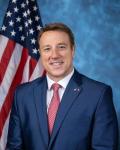
|
Rep. Pat Fallon | TX | 4 |  Republican
Republican
|
No |

|
Rep. Randy Feenstra | IA | 4 |  Republican
Republican
|
No |
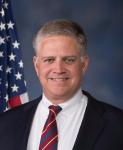
|
Rep. A. Drew Ferguson | GA | 3 |  Republican
Republican
|
No |
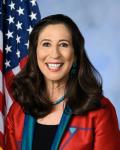
|
Rep. Teresa Leger Fernandez | NM | 3 |  Democrat
Democrat
|
Yes |
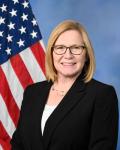
|
Rep. Michelle Fischbach | MN | 7 |  Republican
Republican
|
No |
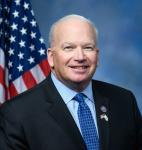
|
Rep. Scott Fitzgerald | WI | 5 |  Republican
Republican
|
No |

|
Rep. Brian Fitzpatrick | PA | 1 |  Republican
Republican
|
Yes |

|
Rep. Chuck Fleischmann | TN | 3 |  Republican
Republican
|
No |

|
Rep. Lizzie Fletcher | TX | 7 |  Democrat
Democrat
|
Yes |
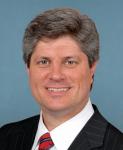
|
Rep. Jeff Fortenberry | NE | 1 |  Republican
Republican
|
No |

|
Rep. Bill Foster | IL | 11 |  Democrat
Democrat
|
Yes |

|
Rep. Virginia Foxx | NC | 5 |  Republican
Republican
|
No |
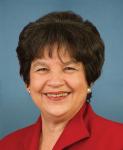
|
Rep. Lois Frankel | FL | 22 |  Democrat
Democrat
|
Yes |
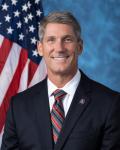
|
Rep. Scott Franklin | FL | 18 |  Republican
Republican
|
No |
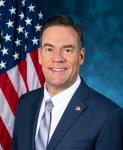
|
Rep. Russ Fulcher | ID | 1 |  Republican
Republican
|
No |

|
Rep. Matt Gaetz | FL | 1 |  Republican
Republican
|
No |

|
Rep. Mike Gallagher | WI | 8 |  Republican
Republican
|
No |

|
Sen. Ruben Gallego | AZ |  Democrat
Democrat
|
Yes | |

|
Rep. John Garamendi | CA | 8 |  Democrat
Democrat
|
Yes |

|
Rep. Andrew Garbarino | NY | 2 |  Republican
Republican
|
Yes |
2021 House Key Votes
- Confirmation of Janet Yellen as the Secretary of the Department of Treasury
- Freedom to Vote: John R. Lewis Act
- NLRB Joint Employer Congressional Review Act
- Ending Forced Arbitration of Sexual Assault and Sexual Harassment Act
- Confirmation of Russell Vought to be Director of the Office of Management and Budget
- Equality Act
- Protecting the Right to Organize Act - Motion to Recommit
- American Rescue Plan Act
- Protecting the Right to Organize Act
- Confirmation of RFK as HHS Secretary
- For the People Act
- Protecting the Right to Organize Act
- Raise the Wage Act
- Families First Coronavirus Response Act
- Expanding Access to Capital Act
- CARES Act
- Confirmation of Nicole Berner to U.S. Circuit Judge for the Fourth Circuit
- The FY 2025 Budget Resolution
- Families First Coronavirus Response Act
- Paycheck Fairness Act
- American Rescue Plan Act
- For the People Act
- Congressional Review Act
- Confirmation of Katherine Tai as the United States Trade Representative
- Confirmation of Marty Walsh as the Secretary of the Department of Labor
- Confirmation of Ketanji Brown Jackson to Associate Justice of the Supreme Court
- Paycheck Fairness Act
- Rescissions Act of 2025
- Congressional Review Act
- Budget Reconciliation
- The FY 2025 Budget Resolution
- Default on America Act
- Confirmation of Gwynne A. Wilcox to the National Labor Relations Board
- Equality Act
- Paycheck Fairness Act
- For the People Act
- John Lewis Voting Rights Advancement Act
- CHIPS and Science Act
- Confirmation of Jennifer Abruzzo as NLBR General Counsel
- Confirmation of Gwynne Wilcox as Member of the NLRB
- Confirmation of David Prouty as Member of the NLRB
- Infrastructure Investment and Jobs Act (IIJA)
- The rule providing for consideration of S. 1071, the National Defense Authorization Act (NDAA)
- Inflation Reduction Act
- DISCLOSE Act
- DISCLOSE Act
- Lower Health Care Premiums for All Americans Act
- Infrastructure Investment and Jobs Act (IIJA)
- Build Back Better Act (BBB)
- CHIPS and Science Act
- Rescissions Act of 2025
- Inflation Reduction Act
- CARES Act